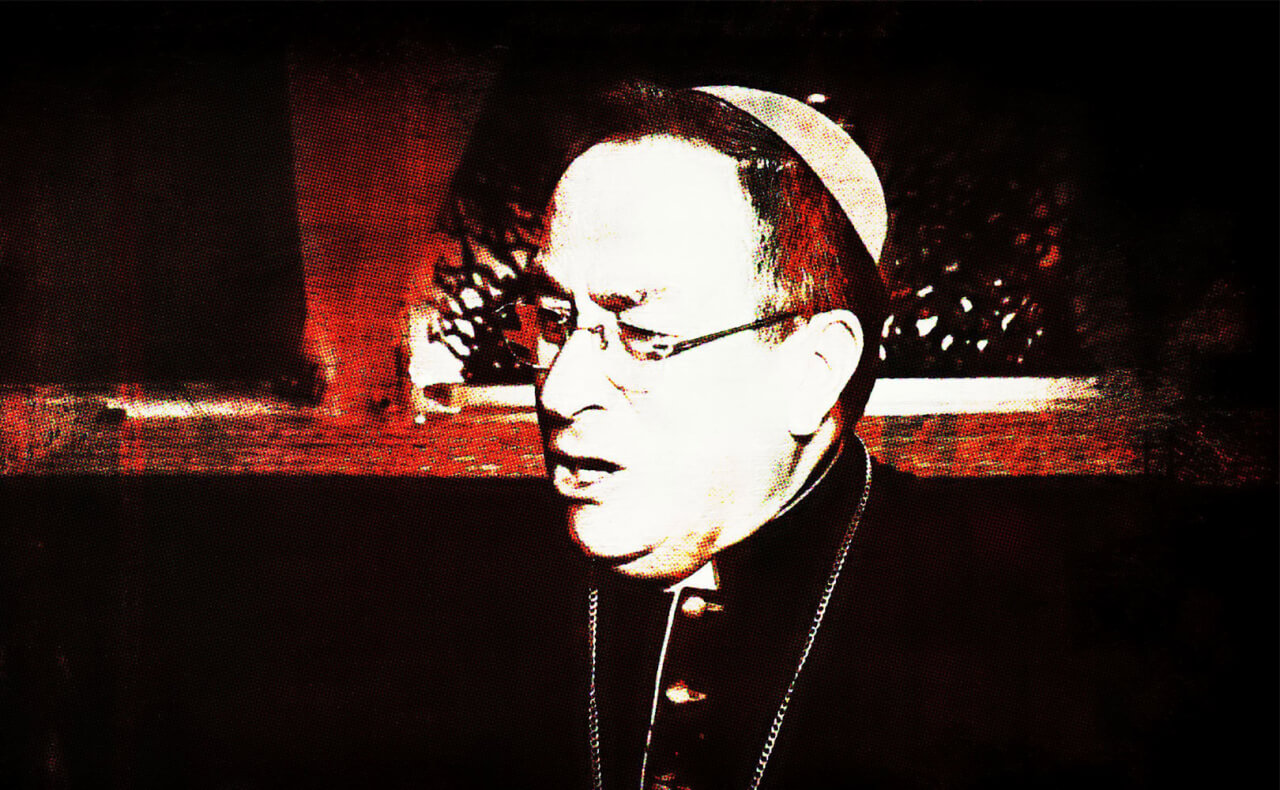Martha Alegria Reichman is the widow of the late Alejandro Vallardes, who served as the Honduran ambassador to the Holy See for over two decades. She recently published a book about Honduran Cardinal Oscar Rodríguez Maradiaga, the leader of the pope’s council of cardinal-advisers and a figure increasingly associated with scandal. The book, entitled Sacred Betrayal, is currently available only in Spanish, but Edward Pentin of the National Catholic Register interviewed the author about Maradiaga, and she has some interesting things to say.
Maradiaga, she alleges, advised her in making a financial investment with what later appeared to be a fraudulent London-based investor who “disappeared with all their life savings.” Maradiaga, she said in a separate interview with Pentin last year, had assured her and her husband, “I have already looked into it. It’s safe, that’s why I invested all the money of the diocese.”
Alegria had, at that point, known the cardinal for nearly 40 years.
In that earlier interview, Alegria told Pentin:
What I would like most is to obtain justice somehow or other. All I need is justice. I trust in God and He will know how to heal my wounds which are very painful and deep. He will know how to heal the psychological hurt I have suffered, how I can go on in life without that money, because we lost all our savings … We’ve got nothing left. The Cardinal knows all this, but he has not the slightest remorse.
I want to make clear that I am not the only victim. … We are many victims and the common factor is that we have all had some problem with Auxiliary Bishop Juan Pineda [who is accused of sexual and financial misconduct]. It is clear to us that anyone who touches Pineda is condemned by [Cardinal] Rodriguez [Maradiaga].
This book appears to be the first step in obtaining that justice.
In her new interview, Alegria says that after the betrayal of her family by Maradiaga, she “discovered a dark side in him” and that she “could not live in peace and serenity” for the remainder of her life “without having made this public denunciation.”
“My Christian, ethical, and moral principles,” she tells Pentin, “did not allow me to keep quiet about such terrible things — that would have made me responsible for a cover-up; because to declare what I know and what they have done to me is not only a right that I have, but a duty; because I am a victim of the corrupt system that reigns in the current papacy.”
She says that in her book, she talks also of the experiences of others, “because the wicked triumph when the righteous are silent; and because God himself is being mocked.”
On the matter of Bishop Pineda — whom Vatican journalist Marco Tosatti referred to as the “right-hand man of Cardinal Oscar Maradiaga” until he was forced to resign after allegations that he molested seminarians — Alegria says the Vatican “maneuvered so that Maradiaga would not be officially implicated as Pineda’s concealer; that way he could be kept in the ‘council of cardinals.'”
“The Pope,” she says, “has acted against cover-ups on very few occasions, only when the external pressure is very strong, as happened in Chile. In contrast, in Honduras, the cardinal has the media in his favor, and they do not report any of the denunciations against him.”
“I am just a widow,” she goes on, “to whom neither Maradiaga nor Francis have given importance because they do not practice the Gospel as it should be. It seems that the teachings of Christ have gone out of fashion and the devil reigns.”
Alegria says that Maradiaga acts with impunity and runs a “dictatorship in the diocese” — because “he has the absolute support of someone much more powerful, who is Pope Francis.”
“Whoever reads my book,” Alegria predicts, “will be surprised and convinced of this because of what I tell there, I demonstrate, and Maradiaga will no longer be able to continue saying his hackneyed phrases: ‘They are calumnies’; ‘They attack me so as to attack the Pope.'” She intends to prove his corruption, not merely to assert it:
I do not say anything for the sake of saying it. I do not leave anything in the air. If I say that the cardinal was never our friend, I show it. If I say that my husband was the one who had the idea and carried it out, to get him to become a cardinal, I prove it. If I say that in Rome they are demanding the removal of Maradiaga while in Honduras there is a cover-up for him, I show it. In the book there are very strong accusations and terrible revelations, but after everything, I give the evidence. So nothing is either invented or exaggerated. What is more, there are cases that are terrible and I did not include them because I do not have the evidence.
Considering how plagued by scandal Maradiaga has been and how central a figure to the corruption in Rome during the present pontificate, I hope her book has its intended effect. It will no doubt be of great interest to international Catholic audiences when the English translation arrives.


